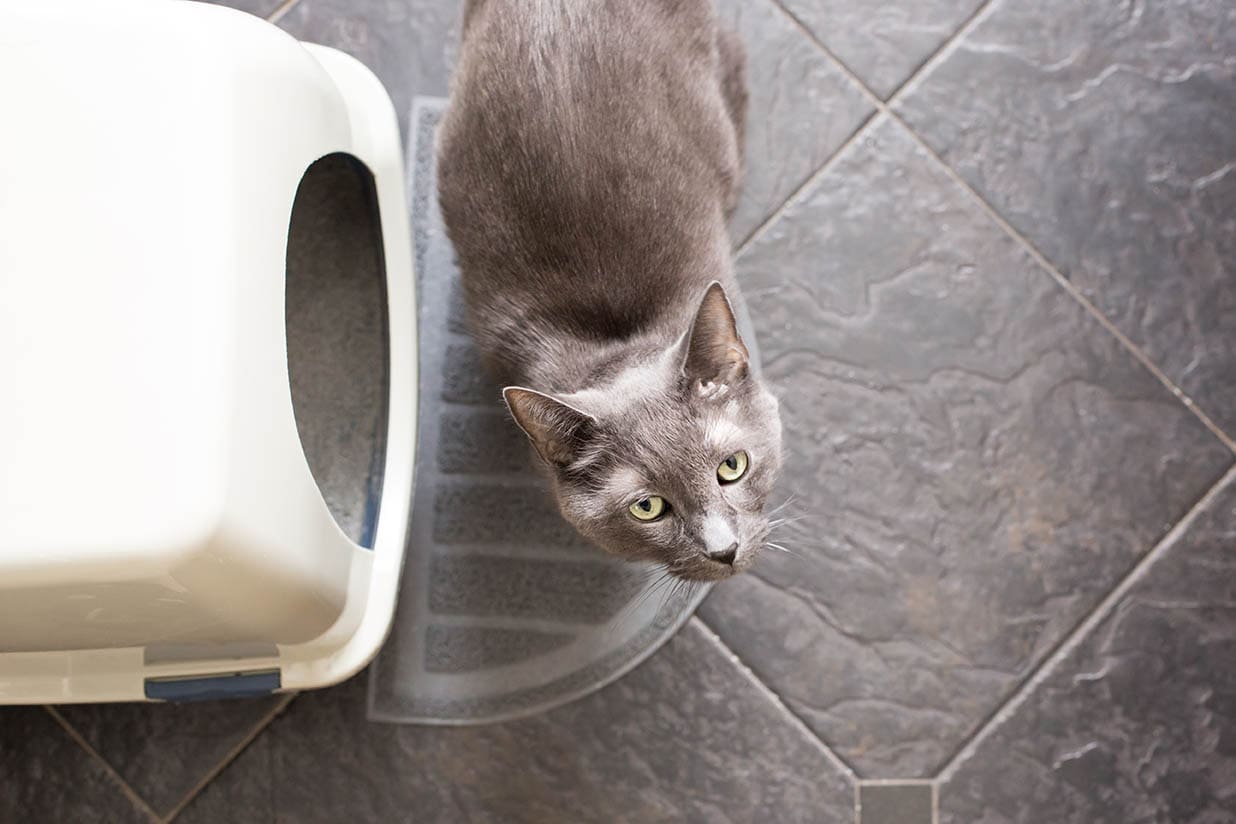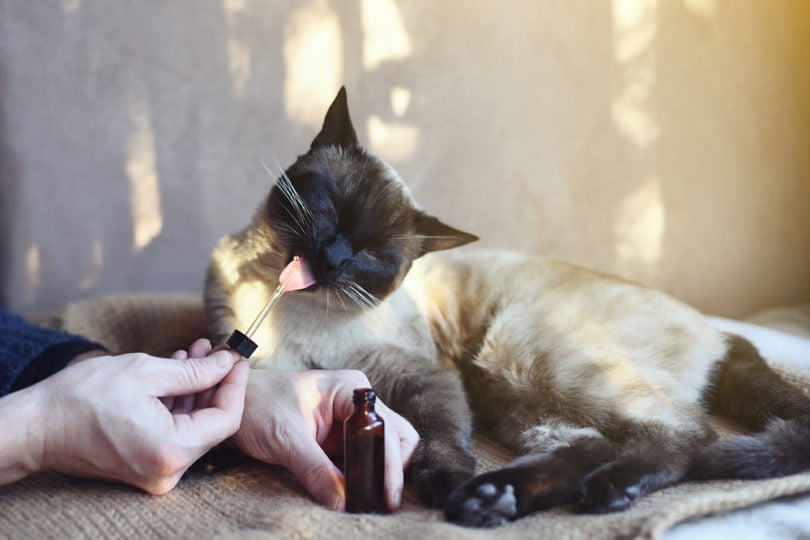VET APPROVED

The information is current and up-to-date in accordance with the latest veterinarian research.
Learn more »Cats are naturals when it comes to using the litter box inside of their home. Most kittens need nothing more than a bit of direction to their new litter boxes to understand where they should go to the bathroom. However, some cats may suddenly stop using their litter box. Why would this be the case? There are a few different reasons that your cat might have suddenly stopped using their litter box, and some of them will require veterinary attention. Let’s examine each one here.

The 7 Vet-Reviewed Reasons a Cat Would Suddenly Stop Using the Litter Box
1. The Litter Box Is Too Dirty
One of the most common reasons for a cat to suddenly stop using their litter box is that it is dirty. You might not think that the litter box is dirty, but that does not mean that your cat feels the same way. Some cats are finicky and require a pristine place to do their business.
If another cat is introduced into the situation and starts using the same litter box, if you switch litters and choose one that does not clump well or is too dusty, or if you miss even just one day of cleaning, your cat might decide to go to the bathroom anywhere but in the litter box, or they may hold it in for an unusually long time.
If you got a new cat, getting a new litter box will likely solve the problem, as each cat needs their own litter box, plus an extra one. If no new cats are involved, you can try a new litter or clean the box more often to lure your cat back to their proper bathroom area. If these ideas do not work, chances are that there is another reason that your cat has decided to stop using their litter box and your vet should check them out.
Cleaning up after our pets is hardly the most fun part of having them. Hepper's Advanced Bio-Enzyme Cat Litter Deodorizer can help to naturally break down odors in your litter box upon contact. It's fragrance-free, biodegradable, and safe to use around your pets.
- Bio Enzymatic Cat Litter Freshener - Smart formulation uses natural ingredients eliminating cat...
- Save Money - Stuff for cats isn’t the cheapest. With this litter box odor eliminator, you’ll...
- Every Litter, Every Surface - Are you afraid this additive won’t work on your litter? Fear not!...
At PangoVet, we've admired Hepper for many years, and decided to take a controlling ownership interest so that we could benefit from the outstanding designs of this cool company!
2. The Litter Is Unattractive
If you have switched to a new cat litter recently and your cat has since stopped using the litter box, the chances are that the new litter is unattractive for some reason. It could be the smell, the texture, the absorbency, or various other reasons. Unfortunately, we cannot read our cats’ minds. What we can do is switch back to the old cat litter or try another one until our cats decide that the litter box is a great place to use the bathroom again.
If your cat does not like any cat litter at all and none of the other reasons outlined here seem to fit the description of your cat’s situation, it is important to consult a your veterinarian as soon as possible to find out what the problem might be. This will at least help rule out health reasons and enable you to focus on other considerations.
3. The Litter Box or Its Location Are Inadequate
Most cats like their privacy when they use the bathroom, while some may want to maintain tabs on everything going on around them. If your cat does well in an uncovered litter box but stops using it when it gets covered in some way, the chances are that privacy is a hindrance more than a luxury. Alternatively, if cats are used to plenty of privacy and are then thrown into a situation where their litter box is completely open to view or in a busy area of the home, they will probably not use the litter box and will choose someplace more private, like a corner or under the bed, to use the bathroom instead.
They may also be anxious to go in the covered box if it is unfamiliar and may be frightening, especially if it has a flap and they’re not used to it, or if the box is too small. To correct this problem, simply provide your cat with the privacy that they are used to or ensure they are comfortable with the litter box design, depending on the situation. If that does not work, there may be another reason that the litter box is being ignored.
If your cat is used to using the bathroom in one place and you suddenly move the litter box to someplace else, which your cat may not like or finds too busy or hard to get to, they may use the bathroom in other places, like where the litter box was last located.
If you want to move your cat’s litter box to a new space, set a new box up in the new location and keep the old box in the old location. Encourage your cat to use the new box using toys and treats until they become used to going to the bathroom in the new location. Hopefully, you can remove the old litter box and just keep the new one in the new location after positive reinforcement. Another method is to slowly move the old litter box to a new location, literally a few inches per day, until you eventually reach the new spot, while giving your cat a slow transition.
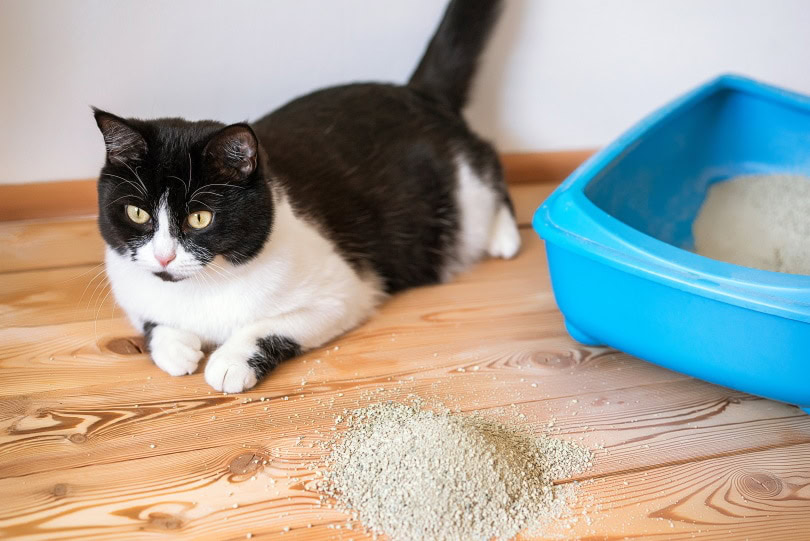
4. Outdoors Have Become a Pastime
Cats that live primarily indoors typically have no problem using a litter box to relieve themselves when necessary. However, any cat that spends time outside is more likely to relieve themselves in the “wild” rather than in a litter box. If your cat grew up living indoors and has always used a litter box, they might stop using the box so much if they are granted access to the outdoor world.
Cats that get even an hour of outdoor time each day may use the litter box less often than a strictly indoor cat. So, you generally don’t need to worry if your cat stops using the litter box as often once they are spending more time outside, as they will likely relieve themselves during their outdoor time. There should be no health repercussions to worry about, as long as they are otherwise well in themselves, with a normal appetite and without any straining when using their litter box.
5. Your Cat Is Stressed
Cats may stop using their litter boxes if they feel scared, anxious, or stressed. This may be due to household changes, such as the arrival of a new baby or another pet, housework, excessive noise, or other. Some cats will react similarly if their human family member is suddenly very absent or doesn’t have the time to spend with them. Besides refusing to use the litter box, some cats will be more clingy, others will hide, eat less, or may become more vocal and even destructive. It’s crucial to observe your cat’s behavior closely and anticipate any stressful events that may have an impact on them, in order to minimize them. Some of these signs are also present in case of health issues, so it’s important to consult a veterinarian.
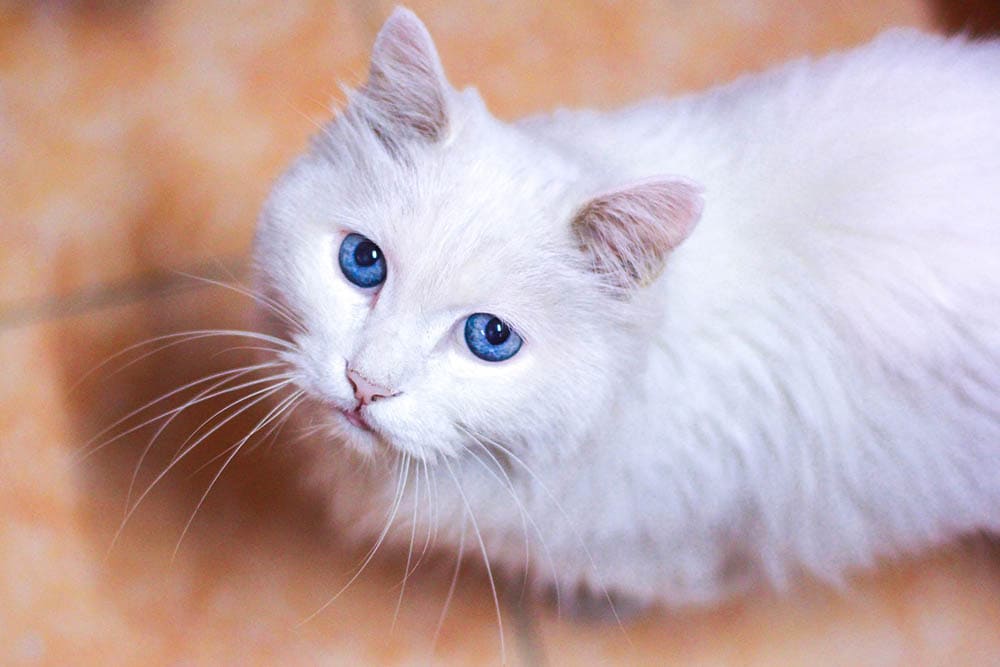
6. Using The Litter Box Is Too Painful
This may be particularly true for senior cats that struggle with mobility or for cats recovering from traumatic injuries or orthopedic surgeries. A litter box with high sides may be very awkward and even uncomfortable to use, for cats with painful joints or large bandages on. For senior cats, using the box may soon be associated with pain, causing them to try and find more comfortable and easily accessible locations to go to the toilet.
Offer your senior or recovering kitty an easy-to-use litter box with low sides, in a location they can easily get to. If they are restricted to one room or a smaller area, place the litter box somewhere they can easily get to. Senior cats should be checked out by the vet, who can rule out other health issues as causes for them not using the litter box while prescribing them painkillers if required.
7. Health Problems Are Brewing
Certain health problems can stop cats from urinating or defecating normally. It could be something like a feline lower urinary tract disease that stops your cat from using the litter box properly.
There are many potential medical reasons, some of which are life threatening, that your cat isn’t using the litter box in the way they should, and some of them may include:
- Feline lower urinary tract disease – bladder or kidney stones, cystitis, urethral blockage (absolute emergency!)
- Increased drinking and peeing – diabetes, kidney disease
- Gastrointestinal issues – diarrhea, constipation
Even problems that do not seem to correlate to using the bathroom, like blood sugar instabilities, can affect your cat’s ability to use the litter box. If you suspect that your cat cannot use the litter box due to health problems, the only solution is to schedule a full checkup with your veterinarian.
If your cat is straining while going in and out of the litter box, not passing any urine at all or very little, that may be bloody, or they’re leaving puddles of urine around the house, meowing, refusing their food or vomiting, they need to be examined by the vet immediately, as they could have a blocked bladder.
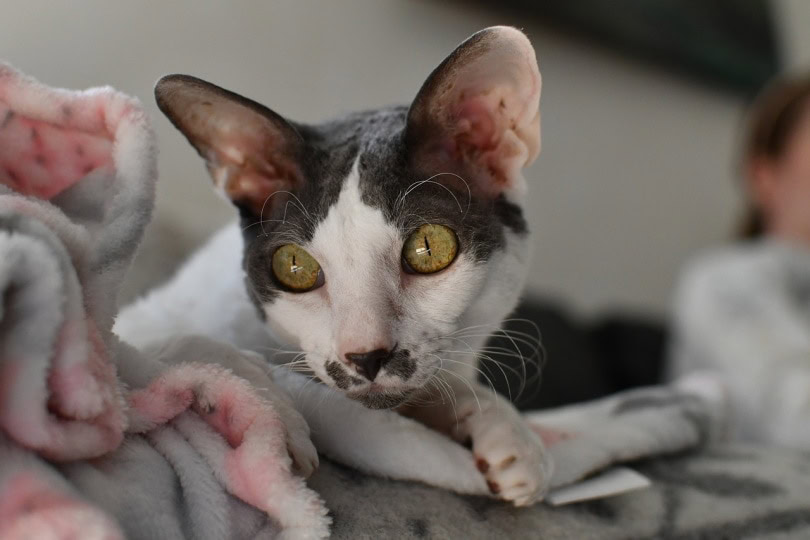

Final Thoughts
While there are many reasons why your cat might suddenly stop using the litter box, it’s important to be vigilant in order to determine the most likely cause. Your cat might have an issue with where you have chosen to move the litter box or the level of its cleanliness or they may have underlying health problems that are more of a concern. Paying attention to the signs of your cat’s displeasure with the litter box and any accompanying changes in the household or your cat’s behavior will direct you more toward the likely cause. However, in case of any straining, inability to urinate or defecate, or if your cat seems unwell or painful, it’s crucial to seek immediate veterinary help.
- Another interesting read: Why Does My Cat Use the Litter Box When I Use the Toilet?
Featured Image Credit: Jennifer McCallum, Shutterstock
Contents
- The 7 Vet-Reviewed Reasons a Cat Would Suddenly Stop Using the Litter Box
- 1. The Litter Box Is Too Dirty
- 2. The Litter Is Unattractive
- 3. The Litter Box or Its Location Are Inadequate
- 4. Outdoors Have Become a Pastime
- 5. Your Cat Is Stressed
- 6. Using The Litter Box Is Too Painful
- 7. Health Problems Are Brewing
- Final Thoughts
